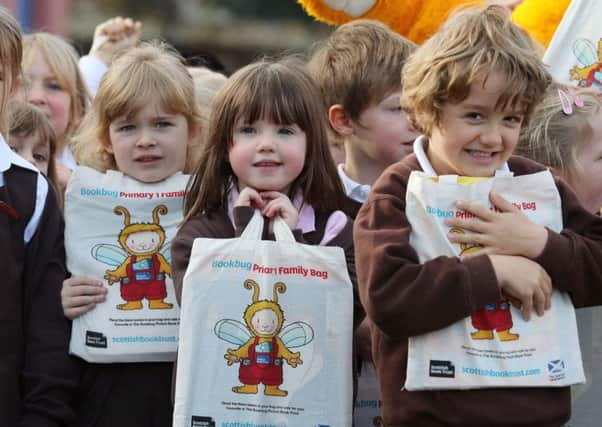Finding a more positive life through the pages of books


Working for an organisation founded on the belief that we can change lives through reading and writing, I find myself reflecting more than usual on the wealth of research which lays out the benefits of reading, both for the individual and for their wider community.
According to “Reading between the Lines: The Benefits of Reading for Pleasure”, “People who read regularly feel closer to their friends and to their community than lapsed or non-readers. Reading not only produces greater understanding and empathy with others; it also gives a currency for sharing experience more meaningfully than is possible in ordinary social conversation. Readers also had a stronger and more engaged awareness of social issues and of cultural diversity than non-readers.”
Advertisement
Hide AdAdvertisement
Hide AdReading regularly is now known to have benefits for mental health and wellbeing; readers have been found to be more contented with their lives and, for children, choosing to read for pleasure is one of the key indicators of their later success in life.
Reading is often seen as a personal, inward-looking pursuit, but this is far from the truth. Reading is about reaching out, and being a reader is about connecting with other people – finding out what other people know, think, believe and feel and relating it to our own experiences and imaginings.
I have been lucky enough to experience what happens when a community builds itself around reading and I think many places and people could benefit from a similar approach.
Lindsey Barley, a deputy head teacher in East Lothian, began her reading communities approach in Dunbar. She wished to ensure that all of the children in the school had support and encouragement for their reading from an adult in their community and to build a reading culture in the town to really embed all the positive messages about reading into children’s lives.
She found reading champions from a whole range of local organisations who offered to read with individual children, and encouraged people across the community to wear lanyards with details of the book they were reading, ensuring that natural conversations about books and reading would start when children visited a local shop or café.
Suddenly reading became a visible and enjoyable part of the town’s life. Adults reported that they were also reading more as they discussed each other’s lanyards. Lindsay has since initiated the approach again in Tranent and in Musselburgh and in each place the communities have risen to the challenge creatively and enthusiastically. These projects have proven that collectively encouraging kids to read for pleasure is also a great hook for encouraging the rest of us to make time to read, rediscover the pleasure and share our reading.
Creating something on the scale of “Dunbar Reads Together” or “Reading is Braw” in Musselburgh is a challenge and requires a lot of passionate people working together. But there are lots of small ways to build reading communities. Start a book group and hold meetings in public venues, welcoming anyone who wants to join in. Discuss a book with a film adaptation and more people can join in and may be encouraged to pick up the book. Leave books you have read around your local neighbourhood for other people to find – establish bookswap shelves in cafes, pubs, community centres, doctor’s surgeries, you could even set one up at work.
Advertisement
Hide AdAdvertisement
Hide AdGive books as gifts. Book Week Scotland is a great time to start – give out some copies of our free book Secrets and Confessions or challenge people in your community to a reading dare.
With more people reading we will all be better at placing ourselves in others’ shoes, making an effort to understand their perspectives and having conversations about the things we disagree on.
Philippa Cochrane is head of reader development at Scottish Book Trust. Book Week Scotland runs from tomorrow until – 27 November.